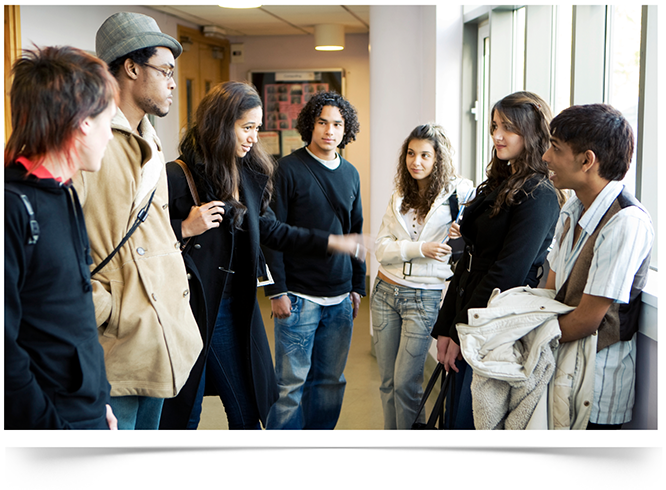Back to series




Many believers, especially those who are young, can relate to this experience of a recent college graduate:
I clearly remember the day, during my first semester in college, when I first fully realized how important it is to have learned how to defend your faith as a young person. I was sitting in my Latin class, right before my professor arrived, listening with unbelieving ears to the easy, light-hearted manner in which my fellow classmates—intelligent, cultured young people, most of whom I liked very much—were discussing, and actually laughing about, issues whose sinfulness I had up to that moment sincerely believed no one could underestimate. All at once I realized how different the culture of the world is from the core beliefs of the Christian faith, and how much intelligent effort is necessary in order to explain to others, not only what is truth (John 18:38), but why the truth matters.
Why does it matter? Being able to defend and explain the Truth of our faith to others is an essential part of our mission to share the gospel with all nations and all cultures. When a person’s perspective on life is completely contrary to the Word of God, that person will not understand why he or she needs the gospel, until it is explained to them and his or her own perspective is challenged.
| First Peter 3:15 reads: “Always be prepared to give an answer to everyone who asks you to give the reason for the hope that you have. But do this with gentleness and respect” (NIV). This is the chief reason why we, as followers of Jesus, must be able, and train our children to be able, to give a defense for our faith: God has commanded us to do so, but we are to do it with gentleness and respect. |

Apologetics, this “giving an answer for your faith,” is a part of mission that has been greatly neglected in recent generations. It is easy to see why. Many people are afraid they will not be “smart” enough to undertake properly this great responsibility, forgetting that God’s grace is as sufficient for this as for any other task. But in recent years things have become even more challenging. Up until recently, Western culture has been predominantly Christian in its norms and customs. Few felt it necessary to explain why Christianity was the best route to follow. Even the most unchristian members of society knew they had to behave in accordance with at least a superficially Christian moral and philosophical code, even if no one could explain what the reasons were that such moral and religious standards were demanded.
But this has changed. Step into any university across the United States—and indeed Canada and Europe as well—and you will find young people, not unreasonably, refusing to associate themselves with a faith that they do not understand and do not see many people around them purposefully living out. New religions and atheistic philosophies have replaced our nominally Christian culture with a religiously pluralistic culture, and young people see no reason why the faith of their parents and grandparents should be considered more valuable or true than any other.
And this is not happening only on college campuses. In high school and even before, kids are bombarded with questions about and challenges to their faith, whether from friends or through topics raised in our media culture. At such a young age, they cannot be expected to respond from experience; believing adults may well be able to argue against non-Christian worldviews because they tried them previously and found them failures. Children lack the moral experiences of adults.

However, when it comes to the fundamental questions of reality, children often have a deeper insight than adults. With fewer life complications and responsibilities than adults, young people are often more focused on “big picture” issues, trying to figure out what life is all about without the distractions of career or long-term relationships. They are the ones who are asking the most tricky questions about faith, the ones who most deeply demand an answer.
But how do we teach children how to explain their faith and defend their beliefs when challenged? First of all, it is necessary to recognize that the questions children ask are important; they need an intelligent response. If you as a parent don’t have a good answer, say so, but then follow up and do some research. Take time to discuss matters of faith with them. If you demonstrate that you think following Jesus is worth exploring, they will follow your lead in an astonishing way. Children tend to give their all, with fewer culturally induced inhibitions or embarrassment than adults have, to any effort they think is significant in their lives. If they feel that way about their faith, they will likely have a great influence on their friends and classmates and continue to have an influence in God’s kingdom work.
Click here for a print-friendly version.
C.S. Lewis Institute
Author
C.S. Lewis Institute, in the legacy of C.S. Lewis, works to develop wholehearted disciples of Jesus Christ who will articulate, defend, share, and live their faith in personal and public life. Founded in 1976 by Dr. James Houston and James R. Hiskey, the Institute provides leading teachers who address important issues of the day from the perspective of Biblical orthodoxy, while also providing discipleship for individuals in small groups.

 COPYRIGHT: This publication is published by C.S. Lewis Institute; 8001 Braddock Road, Suite 301; Springfield, VA 22151. Portions of the publication may be reproduced for noncommercial, local church or ministry use without prior permission. Electronic copies of the PDF files may be duplicated and transmitted via e-mail for personal and church use. Articles may not be modified without prior written permission of the Institute. For questions, contact the Institute: 703.914.5602 or email us.
COPYRIGHT: This publication is published by C.S. Lewis Institute; 8001 Braddock Road, Suite 301; Springfield, VA 22151. Portions of the publication may be reproduced for noncommercial, local church or ministry use without prior permission. Electronic copies of the PDF files may be duplicated and transmitted via e-mail for personal and church use. Articles may not be modified without prior written permission of the Institute. For questions, contact the Institute: 703.914.5602 or email us.
-
Recent Podcasts
Reasoning Requires Faith – Jeffrey Geibel’s Story
by Jeffrey Geibel on July 4, 2025What happens when the pursuit of intellectual certainty...Read More
-
Fix Your Eyes Upon Jesus
by Steven Garber, Aimee Riegert on June 27, 2025
-
An Honest Search for God – Dr. Jay Medenwaldt’s Story
by Jana Harmon, Jay Medenwaldt on June 20, 2025
-
Recent Publications
Are Miracles Possible
by Christopher L. Reese on June 1, 2025The 21st century has provoked many conversations and...Read More
-
Is God Just, Not Fair?
by Jennifer Rothschild on May 15, 2025
-
Seeking Dietrich Bonhoeffer
by Joseph A. Kohm on April 29, 2025
0
All Booked
0.00
All Booked
0.00
All Booked
24720
The Adventure of Joining God in His Work Live Online Small Group 7:00 PM CT
https://www.cslewisinstitute.org/?event=the-adventure-of-joining-god-in-his-work-live-online-small-group-700-pm-ct&event_date=2025-09-16®=1
https://www.paypal.com/cgi-bin/webscr
2025-09-16

Next coming event
Days
Hours
Minutes
Seconds
The Adventure of Joining God in His Work Live Online Small Group 7:00 PM CT
On September 16, 2025 at 7:00 pmCategories
Speakers

C.S. Lewis Institute
Author
Team Members
C.S. Lewis Institute
Author
C.S. Lewis Institute, in the legacy of C.S. Lewis, works to develop wholehearted disciples of Jesus Christ who will articulate, defend, share, and live their faith in personal and public life. Founded in 1976 by Dr. James Houston and James R. Hiskey, the Institute provides leading teachers who address important issues of the day from the perspective of Biblical orthodoxy, while also providing discipleship for individuals in small groups.





